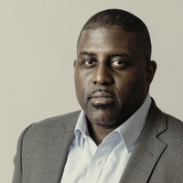 Nana Oye Ankrah Nana Oye AnkrahTHE NEWS ACCRA, Ghana — A wealthy Ghanaian businessman revealed himself as the masked presidential candidate featured on billboards in major cities in recent weeks. But his launch was most notable for highlighting the government’s apparent fear of a new youth-led populist movement similar to others sweeping the continent. Nana Kwame Bediako, a property developer popularly referred to as Cheddar, had planned to unveil his identity at a convention featuring high profile populist figures who have garnered support from young voters, including Peter Obi — who came third in last year’s Nigerian presidential election — and the leader of South Africa’s far-left Economic Freedom Fighters party Julius Malema who was due to speak via video call. But military personnel swooped in to prevent people attending the event at Black Star Square, in the capital Accra, shortly before it was due to begin on Sunday. A letter from the Ghanaian president’s office, seen by Semafor Africa, stated that a permit issued on Nov. 11 to use the site had been revoked due to “an unforeseen state event scheduled to take place at the venue.” The letter was dated Jan. 7 — the same day as the event. The political figures who were due to deliver speeches at the Accra event later addressed a press conference at a hotel in the city, during which Bediako revealed that he was behind the New Force campaign that aims to challenge Ghana’s two main parties. “I’m not going to be scared off. I came to you as your salvation,” said Bediako during a speech in which he said his aspirations lay beyond running to be president in Ghana’s election in December. Billboards bearing the message “Nana Kwame Bediako for President #thenewforce” had been posted around Ghana within 24 hours of the businessman’s event being canceled. NANA OYE’S VIEW The cancellation of the New Africa Convention came as a surprise to many, but Ghana’s government is clearly unwilling to accommodate events that could make it look bad in an election year. The move to use security forces to enforce the cancellation suggests a deeper fear that the populism gripping some young people elsewhere in the continent could spread to Ghana. Ostensibly, the move smacks of paranoia — particularly coming only weeks after the New Force’s spokeswoman was arrested. It all points to a concerted effort to shut down a nascent party. The chances of a new party bringing a new president to power are very slim. It would take time, money and a nationwide party infrastructure to break the political duopoly enjoyed by the main parties. But Ghanaian authorities have reasons to be worried. Ghana is still grappling with the worst economic crisis in a generation; the cost of living has skyrocketed, leading to widespread frustration. And the fact that just two leading parties have governed since the move to multi-party democracy in 1992 means young adults, who have never experienced another form of leadership, could be hungry for change. Bediako, who will turn 44 next month, offers something radically different to Ghana’s political mainstream, much like Obi and Malema, or Donald Trump and Boris Johnson in the West. Bright Simons, research lead at Imani Centre for Policy in Accra, told me that “Cheddar” is looking to develop a cult-like following. “Think of him as a cross between a modern megachurch televangelist and a miracle drug salesman.” | 








